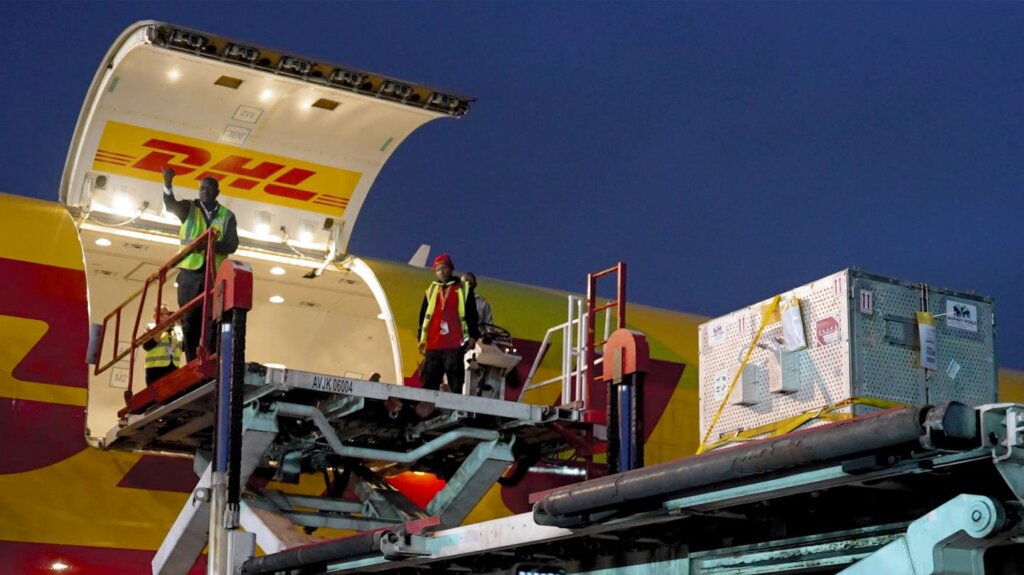Recently, the globally renowned logistics company DHL announced that it would halt shipments to the US for goods valued over $800 due to changes in US customs policies. This decision has significant implications for cross-border e-commerce and international logistics. In this article, we will delve into the background of this event, the reasons behind the customs changes, and the potential impact on global logistics and businesses.

Why Did DHL Halt Shipments?
DHL is one of the world’s leading international express and logistics companies, handling a large volume of cross-border shipments. According to the latest announcement, DHL has decided to halt shipments of goods valued over $800 to the US. This move is closely tied to changes in US customs policies. Recently, the US government has tightened regulations on imported goods, especially on those of higher value.
The US customs now require that any imported goods worth more than $800 must submit more detailed customs declaration information. This includes item classification, origin, value, and other specifics. Moreover, the customs review process has become more stringent, leading to additional obstacles for DHL and other international logistics companies in handling these shipments.
Background of US Customs Policy Changes
According to the latest updates from U.S. Customs and Border Protection (CBP), all parcels shipped directly from foreign countries to the US that exceed $800 in value must now submit more detailed import declarations. The purpose of this policy is to better manage cross-border e-commerce and reduce fraudulent declarations. However, it has also imposed additional administrative burdens and complex customs procedures on logistics companies.
These changes primarily affect:
- Cross-border e-commerce platforms: Especially those whose goods often exceed $800 in value.
- Consumers: U.S. consumers purchasing high-value items will face stricter tax and clearance procedures.
As a result of these stringent declaration requirements, DHL has temporarily halted shipments of goods exceeding $800 to ensure compliance and avoid unnecessary delays and additional costs.

Impact of DHL Halting Shipments on Global Logistics
As a major player in the international logistics industry, DHL’s decision to halt shipments to the US for high-value goods may have several consequences for cross-border e-commerce, businesses, and consumers:
1.Logistics Challenges for E-commerce Platforms
For e-commerce platforms relying on international logistics, such as Amazon, eBay, etc., DHL’s policy may force them to seek alternative logistics partners to handle orders exceeding $800. This change could increase costs and introduce uncertainties regarding shipping times for sellers based in countries such as China or Europe.
2.Customs Clearance Delays
Stricter customs requirements are likely to cause delays in the clearance process for goods exceeding $800. This means consumers and businesses will face longer waiting times, potentially affecting the shopping experience and supply chain efficiency.
3.Increased Costs
The more stringent customs policies may result in additional customs handling fees, tariffs, and taxes. This not only raises logistics costs for sellers but may also be passed on to consumers, leading to higher product prices.
4.Other Logistics Companies May Follow Suit
DHL’s decision as an industry giant may influence other international courier companies like FedEx and UPS. Other logistics providers might adjust their policies to address the same customs challenges.
How to Respond to Customs Policy Changes?
For cross-border e-commerce sellers and international merchants, responding to this change requires strategic adjustments:
1.Choose the Right Logistics Partner
E-commerce sellers should work with logistics companies that can handle customs clearance for high-value goods. Partnering with experienced customs clearance firms can help avoid delays in the clearance process.
2.Prepare Customs Declaration Documents in Advance
Sellers need to prepare detailed information about the product classification, value, and origin in advance to ensure compliance with US customs regulations. Working with professional customs clearance companies can reduce delays during the clearance process.
3.Adjust Pricing Strategies
If customs-related costs rise, sellers may need to adjust their pricing strategy to account for these additional expenses. Optimizing supply chain management and finding more competitive shipping channels can help offset these costs.
4.Stay Updated on New Policy Changes
Sellers should regularly monitor customs policy changes to ensure that they comply with the latest regulations. Timely adjustments to strategies can prevent delays or fines due to non-compliance.
Conclusion: The Impact of DHL Halting Shipments of High-Value Goods to the US
DHL’s decision to halt shipments to the US for goods over $800 is a direct result of US customs policy changes. While this decision presents challenges for global cross-border e-commerce and logistics companies, it also encourages sellers to focus more on compliance and customs efficiency. To navigate this change, e-commerce platforms and logistics companies need to closely monitor policy changes, optimize the customs clearance process, and select the right logistics partners to ensure smooth cross-border shipping.
As global e-commerce continues to grow, cross-border logistics will face more complex policies and regulatory requirements. Both sellers and consumers must remain aware of these changes in order to find the best solutions in an evolving international logistics environment.
We hope this article helps you understand the reasons behind DHL’s shipment halts and the broader impact on global logistics. If you’re a cross-border e-commerce seller, remember to stay updated on customs policy changes, adjust your logistics strategies, and ensure smooth operations for your business!




